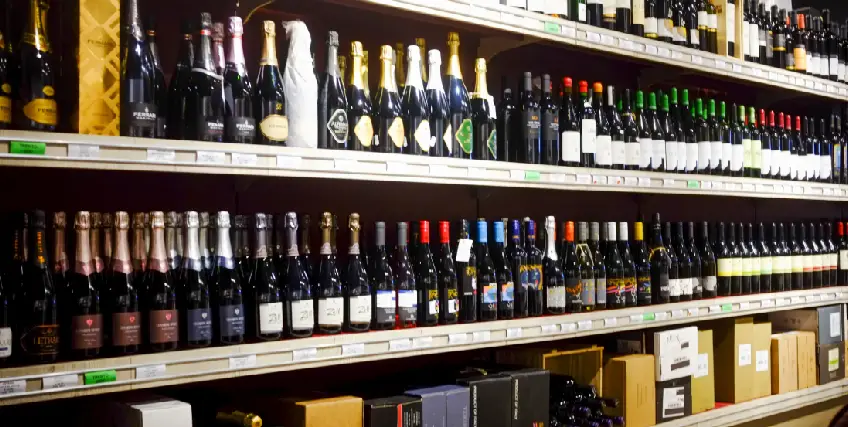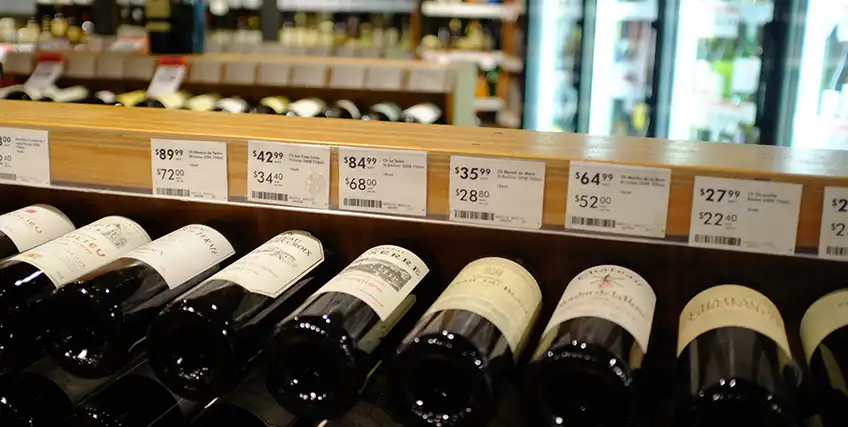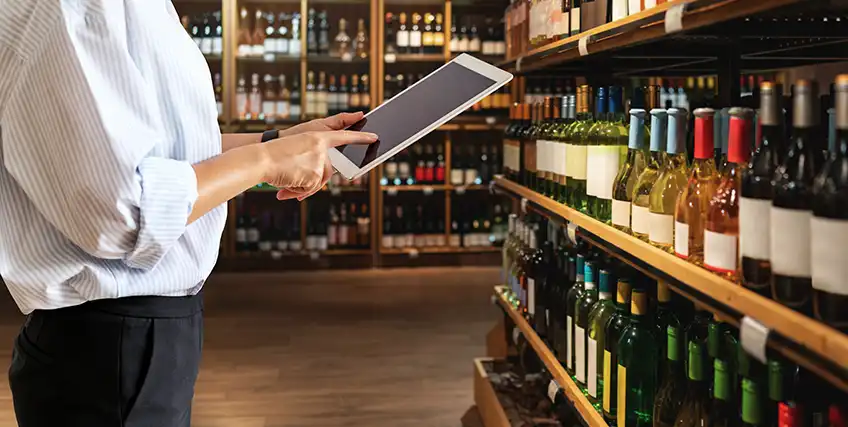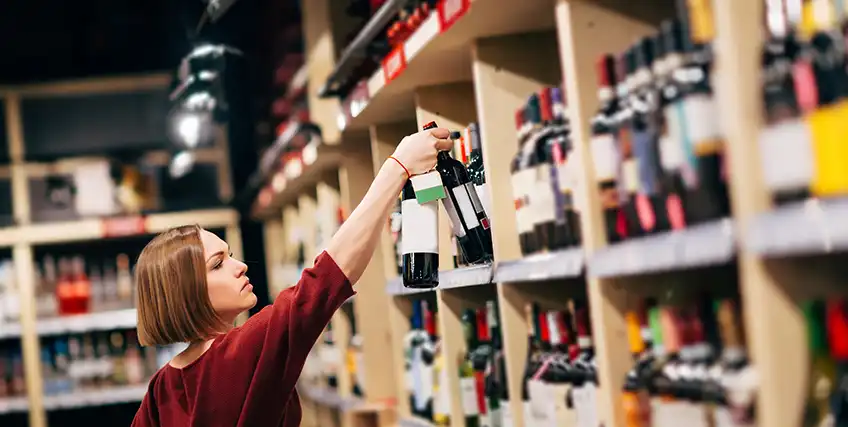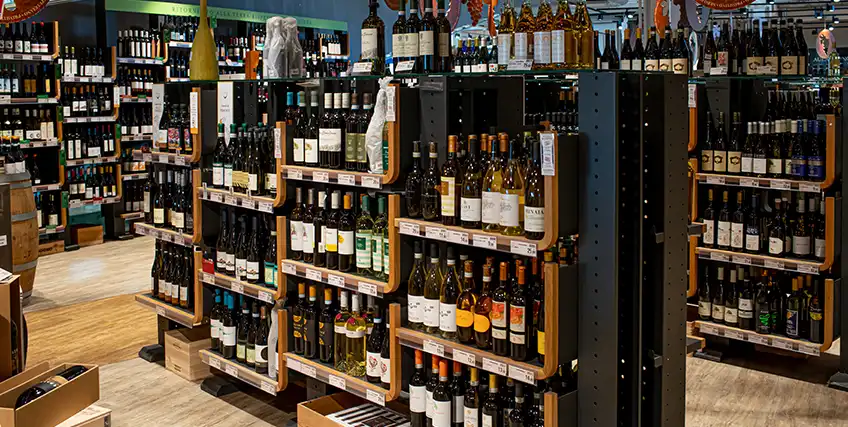Liquor Store Financing Made Easy:
Boost Inventory, Expand, and Thrive
Explore financing and loans for liquor stores from Biz2Credit designed to meet your restaurant’s needs.
Need Financing for Your Business?
Biz2Credit has commercial financing products, such as term loans and revenue-based financing, that help your business grow.
Apply OnlineSet up a Biz2Credit account and apply for business financing
Why Liquor Stores Need Reliable Funding Solutions
Operating a liquor store requires maintaining substantial inventory, upgrading store infrastructure, and adhering to strict regulations. These financial demands create a pressing need for liquor store financing, especially for buying bulk inventory at discounted rates or implementing a modern liquor store POS system. Whether you're opening a liquor store for a second time or buying a liquor store to expand your business, securing the right funding is crucial. Liquor store owners often turn to solutions like SBA loans for liquor stores or specialized liquor store financing to manage cash flow and keep operations running smoothly. Reliable financing ensures liquor stores remain competitive in a growing market. This is where Biz2Credit comes in and provides the much-needed financial support to liquor store owners.
Why is Biz2Credit a Top Choice for Liquor Store Financing?
Biz2Credit is a trusted name in liquor store financing because we understand the specific financial needs of liquor store owners. Whether you need funds to purchase inventory, invest in marketing, or upgrade your liquor store POS system, we offer customized solutions to suit your business. Our quick application process, competitive pricing, and flexible repayment plans make it easier for owners to manage cash flow and reinvest in their stores. Liquor store owners across America rely on Biz2Credit’s expertise and commitment to their success. Choose from our customized funding options for liquor store inventory financing.
Our Strengths:
- Repayment Simplicity: We have simple repayment options for liquor store financing with flexible repayment terms. See your loan payment schedule and make payments any time in your Biz2Credit account.
- Dedicated Funding Specialists: Consult a funding specialist to determine what financing options fit your business best or get help at any time along the way as you complete our online funding application.
How Liquor Store Financing Can Boost Your Business
Whether you're planning on opening another liquor store, buying a liquor store, or expanding your current operations, the right financing can give your business a competitive edge. Liquor store loans provide access to working capital for stocking up on high-demand products, improving store infrastructure, and managing day-to-day expenses. Biz2Credit helps liquor store owners meet their unique goals with funding solutions like term loans and revenue-based financing. These financing solutions are designed to help your liquor store thrive, whether you’re upgrading or expanding an established business
Liquor Store Financing Designed for Your Needs
1. Term Loans for Liquor Stores
If you’re looking for a reliable financing option for long-term projects like remodeling, expansion, or launching marketing campaigns, term loans for liquor stores are a great fit. These loans provide a lump sum upfront, which is repaid over a set period with fixed interest rates. This financing ensures liquidity for liquor store owners while offering predictable monthly payments. Opting for term loans for liquor stores can give you the stability to plan long-term growth confidently.
Eligibility Criteria:
- Minimum 18 months in business
- Annual revenue of $250,000 or more
- A credit score of 650 and above
2. Revenue-Based Financing for Liquor Stores
For liquor store owners dealing with fluctuating sales, revenue-based financing offers a flexible solution. Unlike traditional loans, your payment amount is calculated based on a percentage of estimated future receivables. This type of financing can also be used for liquor store inventory financing, helping you manage bulk purchases or initial franchise fees without straining cash flow. Biz2Credit provides quick funding decisions and flexible terms, ensuring you can focus on growing your business.
Eligibility Criteria:
- A credit score of 575 and above
- Minimum of 12 months in operation
- Annual revenue of $250,000 or more
3. Commercial Real Estate Loans for Liquor Stores
Expanding your liquor store or purchasing a new property requires significant capital. Commercial real estate loans for liquor stores provide long-term financing solutions to businesses. You can use CRE loans from Biz2Credit for purchasing property, renovating your restaurant, or a wide range of business needs. Whether you're adding more floor space to improve customer experience or opening a second store, Biz2Credit offers flexible terms and competitive interest rates for liquor store loans to meet your needs. Biz2Credit simplifies the funding process with quick funding decisions and tailored repayment terms, allowing liquor store owners to focus on business growth without worrying about upfront costs.
Eligibility Criteria:
- Minimum of 18 months in business
- A credit score of 650 and above
- Property as collateral
- Annual revenue of $250,000 or more.
How Liquor Store Financing Can Help Your Business Succeed
1. Maintain Steady Cash Flow
Running a liquor store involves regular expenses like inventory purchases, employee salaries, and rent. With liquor store financing, you can ensure a steady cash flow, allowing you to manage day-to-day expenses without interruptions. This flexibility is crucial, especially during slower sales periods or peak inventory restocking times.
2. Expand Your Business
Thinking of opening a liquor store in a new location or adding more space to your current store? Liquor loans offer the financial support you need to fund expansion projects, whether it’s leasing a new storefront or buying real estate.
3. Purchase Bulk Inventory
Taking advantage of supplier discounts often requires buying in bulk, which can strain your cash reserves. Liquor store inventory financing through term loans or revenue-based financing ensures you can stock up without worrying about immediate cash flow. This approach not only keeps shelves full but also helps improve profit margins.
4. Upgrade Equipment
Investing in modern equipment, such as a high-tech liquor store POS system, refrigeration units, or security systems, can enhance operational efficiency and customer experience. You can use Biz2Credit’s term loans or revenue-based financing for equipment financing to invest in essential tools without depleting working capital.
5. Improve Store Ambiance
A well-designed and welcoming liquor store attracts more customers. Whether it’s new shelving, lighting, or overall renovations, liquor loans can help cover remodeling expenses, ensuring your store remains competitive and appealing to customers.
How to Apply for Liquor Store Loans
Simple steps to secure liquor store financing with Biz2Credit.

Trusted by Thousands, Proven by Success
Small Business Loans in Liquor Store Financing Loans Articles
How to Use a Business Loan to Expand Your Liquor Store Inventory
Like most retail businesses, liquor stores have to maintain a healthy inventory to ensure they provide an adequate selection for new customers
Owning a Liquor Store: Pros and Cons
Liquor stores can be highly profitable ventures, offering the opportunity to generate consistent revenue while catering to a broad customer base.
How to Manage Liquor Store Inventory
Liquor store inventory management can be incredibly challenging, particularly for new business owners who are not experienced in managing large inventories
How to start wholesale liquor business
Starting a wholesale liquor store can be an exciting and profitable venture if done correctly. The wholesale liquor distribution industry plays a pivotal role in the supply chain
The Best Financing for Buying or Starting a Liquor Store
Securing a loan to buy into a business is a crucial step in the acquisition process, and it can be especially challenging when you're acquiring an established business.
FAQs on Liquor Store Financing
1. Can liquor store financing be used to upgrade my POS system?
Yes, liquor store loans can be used to upgrade your liquor store POS system or invest in other essential equipment. An advanced POS system improves checkout efficiency, enhances inventory management, and provides valuable sales insights, making it a crucial tool for liquor store operations. Biz2Credit offers loans for liquor stores through its term loans, which can be used to lease or purchase new POS systems, refrigeration units, or other store essentials. By upgrading your POS system, you can streamline operations, reduce errors, and improve customer experience. Financing ensures you can invest in the latest technology without affecting your cash flow.
2. Can you finance a liquor license with liquor store financing with Biz2Credit?
Biz2Credit can help finance the costs associated with obtaining or renewing a liquor. Liquor licenses can be expensive and vary significantly by state and local jurisdiction, often requiring a substantial upfront investment. While Biz2Credit doesn’t offer a specific loan solely for liquor licenses, you can use financing options like term loans to cover these costs. Additionally, if you’re planning to revamp your liquor store franchise store, franchise loans for liquor stores can include financing for required upgradation. By leveraging Biz2Credit’s fast decisions and flexible repayment terms, liquor store owners can secure the necessary funds to comply with licensing requirements and focus on growing their business
3. What are the common challenges in obtaining liquor store loans?
Securing liquor store loans can present unique challenges due to the industry's perceived risks. Traditional lenders may view liquor stores as high-risk because of factors like inventory theft, regulatory complexities, and financial mismanagement. Additionally, stringent state and federal regulations can complicate the application process.
4. Are liquor stores considered recession-proof businesses?
Liquor stores are often deemed recession-proof. During economic downturns, alcohol sales tend to remain stable or even increase, as consumers continue to purchase alcoholic beverages. This resilience makes liquor stores attractive to lenders offering liquor store loans options, as the consistent demand reduces the risk associated with lending to such businesses.
5. How can I improve my chances of securing liquor store loans?
To enhance your eligibility for liquor store financing, maintain a strong personal and business credit score, ensure consistent revenue streams, and prepare a comprehensive business plan outlining your store's operations and growth strategies. Demonstrating compliance with industry regulations and having a well-documented financial history can also positively influence lenders' decisions.
6. What factors should I consider when purchasing an existing liquor store?
When buying a liquor store, evaluate factors such as the store's financial health, location, competition, and compliance with local and federal regulations. Additionally, assess the condition of existing equipment, like the liquor store POS system, and consider necessary upgrades. Securing appropriate financing, such as commercial real estate loans for liquor stores or term loans or franchise loans for liquor stores, is also crucial to cover purchase costs and initial operating expenses.
Frequent searches leading to this page

